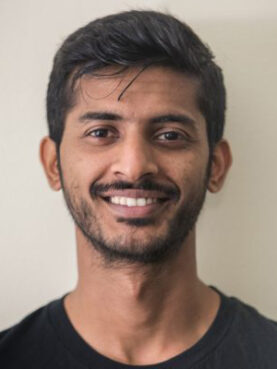(RNS) — Out of the 7,100 languages that exist, the Bible has been translated into more than 700, making it the most-translated book in the world. Yet, those remaining languages — many of them extremely rare — have vexed Bible translators for decades. Two scientists are looking to new advancements in artificial intelligence to help close the gap.
“We want to reach all the languages on earth; the goal is to reach everyone,” said Joel Mathew, a research engineer who alongside Ulf Hermjakob recently launched the Greek Room, an AI-powered technology to help streamline the highly technical process of biblical translation.
Combining Hermjakob’s long experience with natural language processing technologies and Mathew’s field knowledge of Bible translation, the two USC Information Sciences Institute researchers developed the technology with an aim to target “very low-resource languages that are not even in the top 500,” said Mathew.
The Greek Room includes three main tools: spell-checking, world alignment that ensures consistency in translation, and Wildebeest, used to detect improper characters in a script.

Joel Mathew. Photo via USC
The two scientists met in 2015 when Mathew joined USC to complete a master’s degree in computer science. There, he met Hermjakob in the AI division of the Information Sciences Institute. They bonded over a shared passion for languages and their Christian faith.
Mathew, the son of two Bible translators, has observed firsthand the difficulties that come with manual translation by local church members. In his hometown, New Delhi, he took notes of all the tasks that technology could accomplish.
Spell-checking usually requires many people and time, he explained. In the context of translation into rare languages, only local church members are qualified and they don’t have technology to back their work.
“These are not trivial problems; these are very hard problems. But big companies are not interested in solving them; it’s not their business model to target very rare languages,” he said.
When Mathew shared with him some of the problems Indian translators faced on the ground, Hermjakob jumped at the occasion.
“I always had this feeling to know how, at some point, I could apply my skills to my faith,” said Hermjakob, who earned a Ph.D. in computer science from the University of Texas.
With their project, Mathew and Hermjakob want to work on languages that do not even have a written system, grammar codes, dictionaries or spell-checkers.

